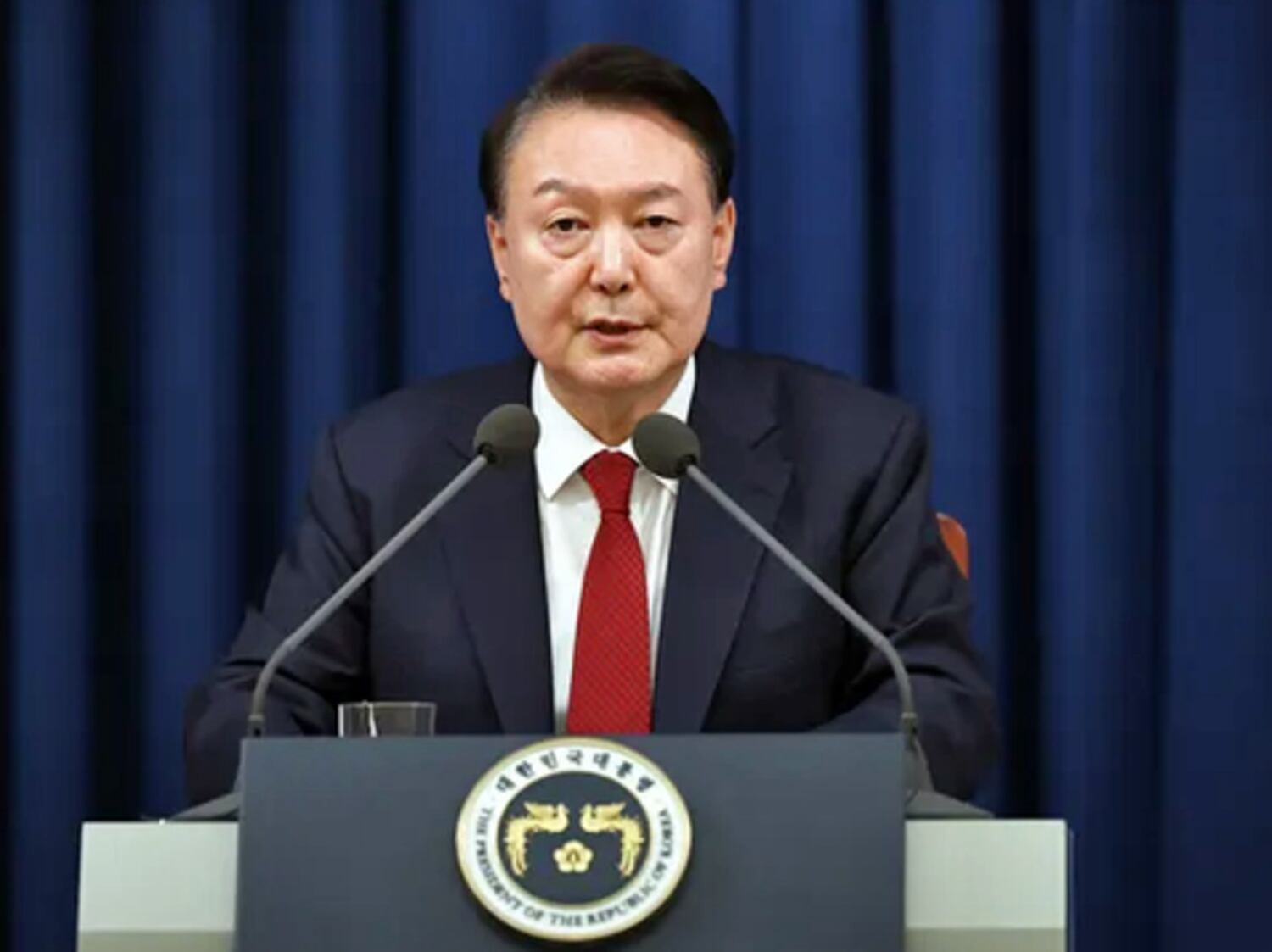Updated on Dec. 10, 2024 at 8:47 p.m. ET
Read a version of this story in Korean
One week later, North Korean state media has finally reported on South Korea’s brief period of martial law and the ensuing political crisis.
“The shocking incident of the puppet Yoon Suk Yeol regime … suddenly declaring a martial law decree and unhesitatingly wielding the guns and knives of its fascist dictatorship wrought havoc across South Korea,” the Korean Central News Agency (KCNA) reported, according to South Korea’s Yonhap News.
North Korean media had been completely silent on the matter since last Tuesday, the day of the declaration, and experts said it was because Pyongyang wants to monitor the situation before saying anything, experts told Radio Free Asia.
Shortly after President Yoon Suk Yeol declared martial law last Tuesday, an emergency meeting at the National Assembly nullified his order, forcing him to call it off.
Now lawmakers from both of the major parties are calling for Yoon to resign. If he does not, he could face impeachment or even prison time.
North Korea blocks the internet access of its citizens and tightly controls what outside news it shares with its people.
In the past, political scandals in South Korea were widely publicized in the North, as they could be used as evidence to showcase capitalism’s faults.
For example, in 2016 and 2017 state media was enthusiastically reported about disgraced South Korean President Park Geun-hye’s impeachment and trial, which lead to a conviction on charges related to influence-peddling.

But that coverage of Park’s downfall did not have the intended effect because it exposed North Koreans to South Korea’s vibrant democracy and booming economy, said Jonathan Corrado, policy director at the New York-based Korea Society nonprofit organization.
“First, (the 2016 and 2017 coverage) revealed the extent of South Korea’s urban modernization, with Seoul’s Gwanghwamun Square lined with glass-covered high-rise buildings,” he said.
“Second, it showed the North Korean public the extent of South Korea’s civil society and democracy.”
Why mess up a good thing?
Pyongyang may also be relishing Yoon’s political crash-and-burn, Lee Hyun-seung, a North Korean escapee and lead program strategist at the Maryland-based Global Peace Foundation, told RFA.
Yoon, a conservative, is more of a hardliner against North Korea than his predecessor, Moon Jae-in, so Pyongyang may want to see him ousted.
RELATED RFA CONTENT
North Koreans in China shocked by South Korean martial law reversal
Photos: Martial law ends in South Korea hours after president declared it
“North Korea believes that President Yoon will be impeached even if they do not take action,” he said. “They are staying silent because they believe that if they step forward, they could provide an excuse for conservatives to oppose impeachment.”
Yoon’s martial law order cited “North Korean threats” as its justification, even though it is widely considered to have been a political move targeting the opposition party.
Lee said North Korea could mobilize its spy network to influence the situation in the South, however.
“There are organizations that operate to influence South Korea, such as the Unification Propaganda Department and the Reconnaissance General Bureau,” he said. “Since these organizations have to carry out operations against South Korea, they can deliver instructions through an underground network like in the past.”
The silence was not unusual to Robert Rapson, a former senior official at the U.S. Embassy in Seoul.
“It’s quite simple if you look at it from the North Korean perspective. Why provoke and provide any distraction from Yoon’s colossal political blunder and anti-democratic actions,” Rapson said.
Kang Vu, a visiting political science scholar at Boston University, said that North Korea is shifting its focus away from South Korea now that is getting closer to Russia and is involving itself in Moscow’s war with Ukraine.
“(That) gives it an incentive it to maintain peace on the peninsula, and this pattern has been clear since the start of 2024,” said Vu.
Translated by Claire S. Lee. Edited by Eugene Whong and Malcolm Foster.
Update adds that North Korea finally reported on the situation on Wednesday.
This content originally appeared on Radio Free Asia and was authored by Cho Jinwoo for RFA Korean.
This post was originally published on Radio Free.